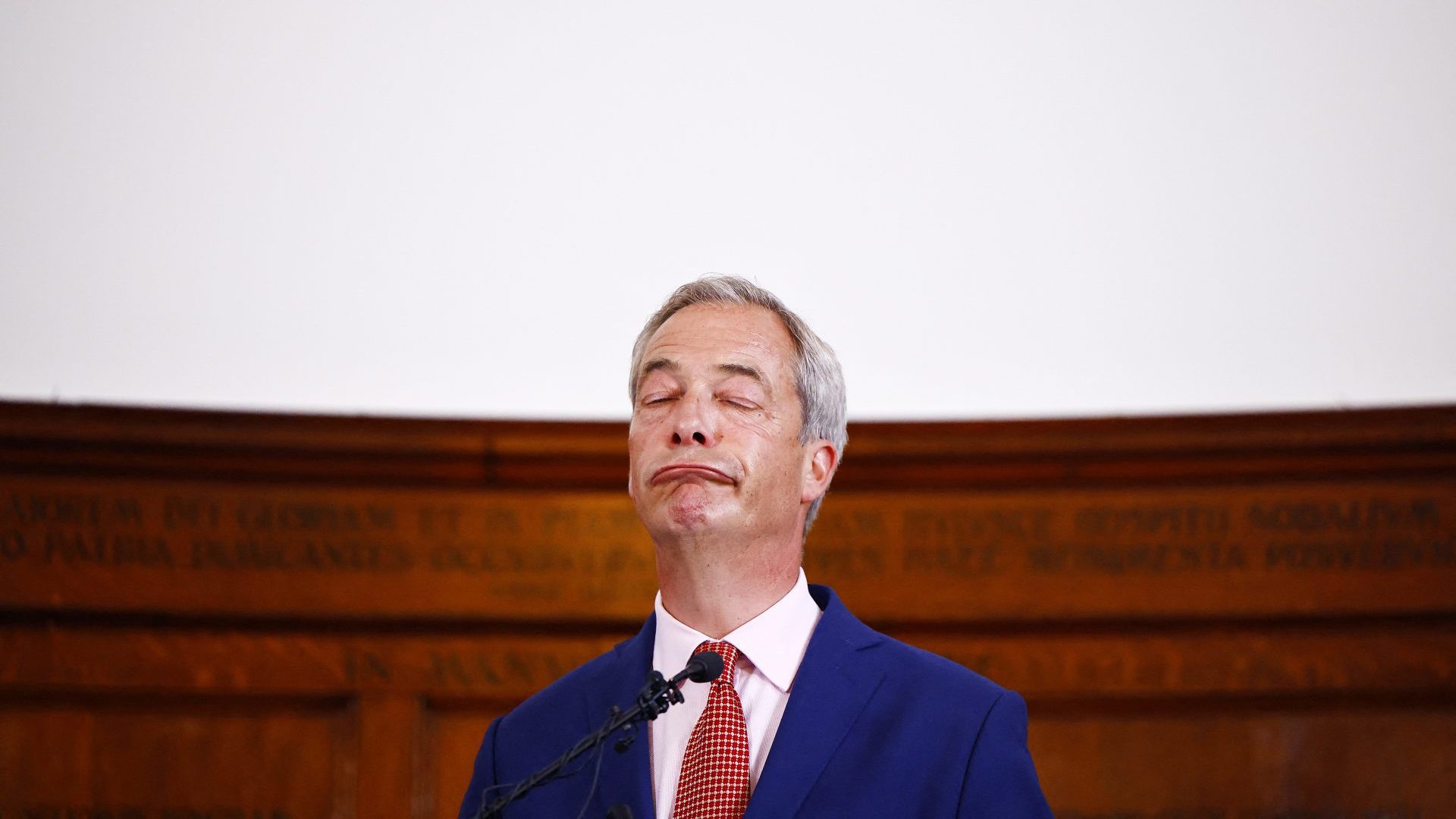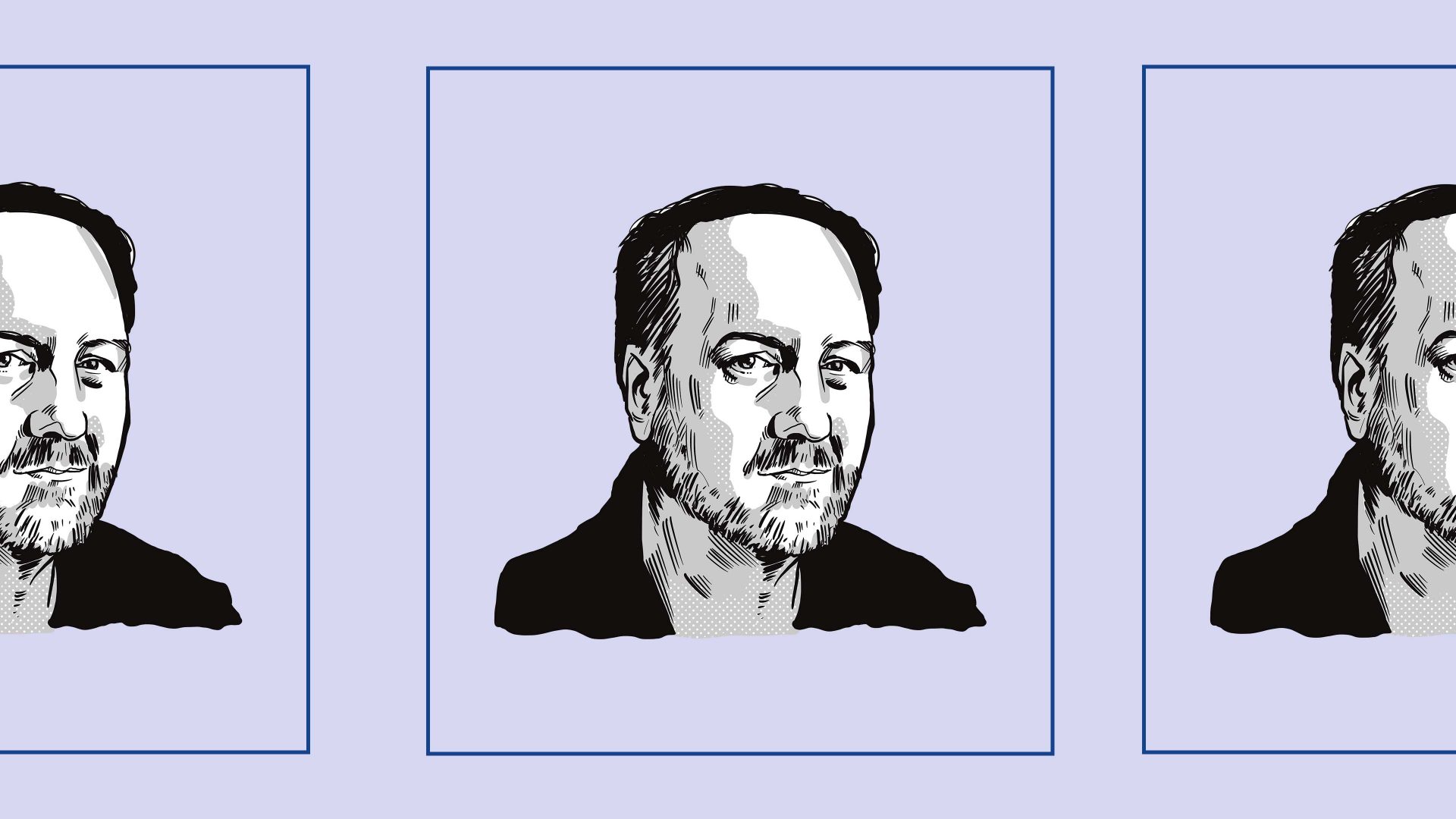Nigel Farage can rarely be accused of missing a moment. As the UK woke up to news of the assassination attempt on Donald Trump, Reform’s leader was doing the morning interview round about what happened.
It was a result of his friend’s unwarranted persecution by the media and by liberals, Farage said, much like the persecution he himself had faced. Bizarrely, he appeared to implicate the comedian Jo Brand and the journalist David Aaronovitch in contributing to the culture that led to Trump’s shooting. And he pulled up just short of asking us to think about the consequences if the milkshakes thrown at him during the general election campaign had been bullets.
Farage’s self-insertion into the biggest story in the world just adds to the wave of coverage he’s been getting – which, combined with his exaggerated sense of swagger, almost comes to suggest he’s some kind of prime minister-in-waiting.
Since his party won five seats at the general election, there have been self-inflicted wounds: the stain of candidates linked to racist messages on social media, the fury of some apparent Reform supporters when the entrepreneur Zia Yusuf, who has donated hundreds of thousands of pounds to the party but happens to be a Muslim, was named chairman.
And, most seriously of all, the revelation that James McMurdock, now Reform’s MP for South Basildon and East Thurrock, was once jailed for assaulting his then-partner, a crime that the party knew about before his selection and which McMurdock has described as a “teenage indiscretion”.
Yet barring a so-called scandal over “non-existent candidates” who, so far at least, annoyingly turned out to exist after all – most of the high-profile coverage of Farage and Reform post-election has concentrated on his belief that 2024’s result was just the start.
Next election he’ll be gunning for 90+ seats held by Labour in which Reform is second place, he says – and the media amplifies it. Others point to France, where Le Pen’s National Rally achieved a record high (and yet, for them, still disappointing) result in the snap election, and say it is a portent for the UK in a few years’ time.
The narrative suggests Farage is a man on the rise, and Reform is the political future of the right. That was certainly the focus of the Popular Conservatism post-election gathering last week, when the anachronistically named “movement” – which lost all its MPs at the last election – gathered to reflect on what the loss meant.
They quickly rejected any idea that Labour, the party that is now in government and holds 411 of the Commons’ 650 seats, had in any way won the election. No, the real lesson from 2024 was that the very idea of elections being won from the political centre ground was a myth.
Instead, it is “proper conservatism” that spells the future of the right: the several hundred people in attendance at last week’s conference nodded along as they were told the Conservative Party had taken their voters for granted and Farage had simply swept in to fill the vacuum. Only by out-Farage-ing Farage and appealing to the voters he had taken, they said, would the Conservatives win.
Labour might hope that the Conservative Party follows this advice, as it would probably guarantee them a second term in government. But the Tory Party’s eyes being firmly focused on Farage only serves to increase his apparent role as a political focal point, about which the future of Britain turns.
All of this coverage works on the assumption that the near future is predictable, or even inevitable – a notion which the last decade (Brexit, Trump, Covid, and more) should have knocked out of us for any particular events, let alone political ones.
But with Farage, there are many more reasons to doubt that the only way is up: even a cursory look at his political career to date shows his various highs have generally been followed by crashing collapses. His parties fracture and split, when elected to public office he fails to do the bare minimum expected of the roles, and the public soon tire of his shtick and look elsewhere.
The reality is that Farage is eminently beatable and entirely stoppable. If he is held accountable in the way that other politicians should be, and if he is scrutinised, there is every chance that 2024 could be yet another brief blip in his career, and he could be relegated back to the margins. But it will take sustained effort, pressure and work.
At various points during the election campaign, he fairly obviously got high on his own supply – suggesting that Reform might win dozens of MPs or secure more votes than the Conservatives. The reality fell far short of that.
Even with the Conservative Party at its lowest ebb of popularity in two centuries, Reform netted only five parliamentary seats to their 121. His hopes of surpassing them in total votes fell spectacularly short: while Reform won 4 million votes, the Conservatives were just shy of 7 million. It wasn’t even close.
In the end, Reform won 14.8% of the popular vote. This is hardly a new high in popularity for a Farage-led party at the ballot box – in 2015, Ukip won 12.6% of the vote (and 3.8 million voters) even if they did only win one seat. A year before, in the EU elections, Ukip had actually finished first with 26.6% of the vote (4.3 million voters, owing to a much lower turnout of diehards, often with strong opinions about the EU).
Farage has not reached some new high watermark – he’s just managed to get his old, loose coalition back again for what must have seemed like an extremely safe protest vote. The Conservatives were out anyway, most voters believed, and Labour were in. That made the stakes of 2024 about as low as EU elections were – which used to be the traditional outlet for smaller parties – and Farage didn’t meaningfully break through.
That means Farage faces a ceiling of votes at around 15-20% of general election voters, which he’s still yet to break through and has no obvious means of doing so. One of the biggest obstacles to Farage managing to break through is, frankly, himself.
Once you get beyond the “vibes” politics upon which Farage relies – I like booze, I like proper red meat, I’m sick of being politically correct, and why can’t we talk about immigration? – most of his politics seem deeply weird to most of the UK electorate.
He was quick to disown some of Reform’s weirder policies, just as he used to do with Ukip, but lots of the oddness comes from him: Farage believes the NHS should be abolished, he believes in a much smaller state and lower taxes, and he wants to scrap many regulations the British public would rather keep. Reform would be a bigger electoral threat if it was economically left wing and socially right wing, but that is not Farage’s personal politics.
Farage’s own personal conduct is likely to catch up with him over the course of a parliament, too. He was a longstanding MEP and was terrible at that job in almost every way it was possible to be bad – he bragged about how much money he bilked from the parliament, was shameless in doing no work, and knew he could make a point of that by framing it as a show of disrespect for an institution he hated.
Farage has bragged on camera of extracting from the European Union more than £2m in expenses, which was, as he would often remind us in other contexts, British taxpayers’ money. His salary was docked by £35,000 for improper expenses claims that were unrelated to EU business. His disregard for actually doing the job was almost legendary: he showed up to vote less than 744 out of 746 other MEPs.
That ploy won’t work at Westminster. Most voters still take parliament seriously and wish their MPs would do the same. Unlike MEPs (when we had them), MPs also have constituencies and are expected to pay attention to them. MPs get re-elected by attending local fetes, raising money for charities, and, crucially, by staying on their casework and helping their constituents.
Farage’s disdain for such things couldn’t be clearer – he contemptuously raised the prospect of having to spend every Friday in Clacton as an MP earlier this year, before deciding to become its MP after all. His old habits are already kicking in, as he’s announced a return to his GB News show every Tuesday, Wednesday and Thursday, which are key voting days for MPs. And of course, he has spent some of this week not helping his constituents in Clacton or Westminster, but instead is in Milwaukee for the Republican convention.
Parliaments last a long time. This one will run for either four or five years, and Farage can rarely keep parties together that long. He not only has to hope that he doesn’t fall out with his four new parliamentary colleagues – which he never managed with Ukip MPs – but that his party holds together.
Reform has no proper democratic structure and no rules beyond control by its shareholders, with Farage holding a majority of the shares. His summary dismissal of deputy leader and former by-election candidate Ben Habib shows how Farage’s high-handed and dictatorial style tends to upset those he relies on to handle all the jobs he can’t be bothered with. Reform should only be at the very start of its honeymoon, and already the cracks in the marriage are all too visible.
As if those weren’t problems enough, Farage’s own attention span will soon haunt him: he craves proximity to power and validation from it, and for him that means involvement with Trump and this year’s presidential election in the US. The pull of being over there for at least some of the contest will probably prove irresistible, both distracting Farage and binding him with Trump, who is profoundly disliked in the UK.
Given all of this baggage, the idea of an ascendent Farage being a political inevitability should not pass the laugh test. He has got this far – or close to it – before and failed rapidly under the slightest pressure.
He is beatable, and he will give his political enemies and accountability journalists alike plenty of opportunities to do just that. What will matter is seizing those opportunities and landing the blows.
It is just as likely that by 2028 Reform can be consigned to the political dustbin with Farage’s other parties as they are still on the rise. We just have to make it happen.




